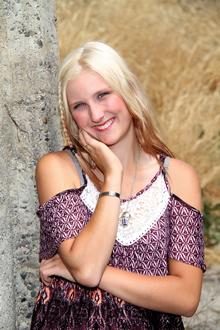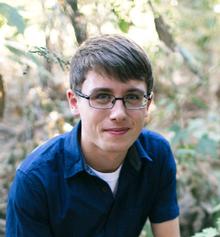Liberty Blog
Blaming the Sin, Not the Social Network
I came across the following post by Bethany Keeley- Jonker, an Assistant Professor of Communication Arts at Trinity Christian College in Palos Heights, Ill. It raises some points that are valuable to pause and consider in these times when the world around us appears to be going faster and faster. It touches on the blessing and curse of social media.
It raises the question of true relationships that God designed us for and sin has distorted. We would be wise to ponder our use of social media, which, as she says "can impact our habits and have the potential to lull us into familiar patterns that can be healthy or unhrealthy." Social media is here to stay. And we would be wise to engage in these types of discussions with our children to guide them in their use of digital media. And most importantly, to understand God designed us for relationships- with Him and others- and to be aware that we can fall into the habit of letting technology define connectedness.
Bethany Keeley-Jonker
5/16/16
People seem convinced that social media bring out the worst in us. Consider a recent Atlantic article connecting different platforms to each of the seven deadly sins. (Plus two bonus sins!) I have some skepticism around projects like this, but I do appreciate a few things about the direct use of “sin” language.
For one thing, it locates our problems where they’ve always been: in people. By thinking about negative uses of social media through a list of ways people have sinned throughout history, we’re at least recognizing that the problem is not so much the technology as it is with the people using it.
The other thing I think is illuminating about the sin talk, although not discussed in the article, is that most sin is a distortion of something good. In Letters to Malcolm, C.S. Lewis wrote that “every sin is the distortion of an energy breathed into us — an energy which, if not thus distorted, would have blossomed into one of those holy acts whereof ‘God did it’ and ‘I did it’ are both true descriptions.” After all, what is the difference between (good) feasting and (sinful) gluttony? More, I would say, in attitude and motivation than in a specific act.
Why the fixation, then, on the ways our worst impulses show up in social media? I think there are a few reasons. Anytime there is a cultural change, it draws attention to itself and sometimes reveals things that were hidden. For instance, I am not so sure that Facebook increases our desire for approval so much as it broadcasts it. That broadcasting element is the second reason I think people worry a lot about social media. Folks have engaged in the same kinds of bad behavior for centuries, but in the past it wasn’t so easy to search, archive and share your vices with a few hundred of your friends, family and acquaintances.
Social media networks can impact our habits and have the potential to lull us into familiar patterns that can be healthy or unhealthy. Indeed, the very characteristics that might tie a medium to a deadly sin also might point us to how it could be used virtuously. While I certainly have seen the wrath the Atlantic author connects with Twitter, so too have I seen relationships built and maintained, as well as offers of encouragement and help. I’ve personally met new people and learned new things through tweets. (Really!) Of course, communicating in such a public but disembodied way is a risk. The risk of talking to strangers means I meet some amazing ones, but it also means sometimes I get flamed or see statements that make my blood boil.
Plenty of pixels have been spilled over the way Pinterest sparks envy (and Instagram, for that matter), but I’ve also seen it spark connection and sharing. I’ve seen it reproduce something that’s happened between women for decades or centuries in low-tech ways: here’s that recipe I was telling you about; here’s how I made this thing; here’s where I bought that thing; here’s the secret to chocolate chip cookies. Sure, this can lead to party escalation, but it also is a way that people share practical information with their networks.
In both of these examples, the difference between a deadly sin and human flourishing is how much we recognize and connect with the humanity of others. If we objectify them as objects of jealousy or anger or lust, or identify them as an audience for our vainglory, we run into all kinds of trouble. If we seek to celebrate and connect with each other, something else happens. I wonder how we could do more connecting and less of the other stuff, both online and off.




